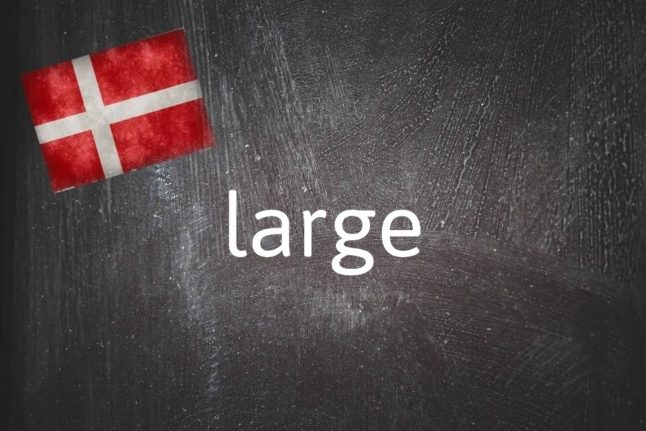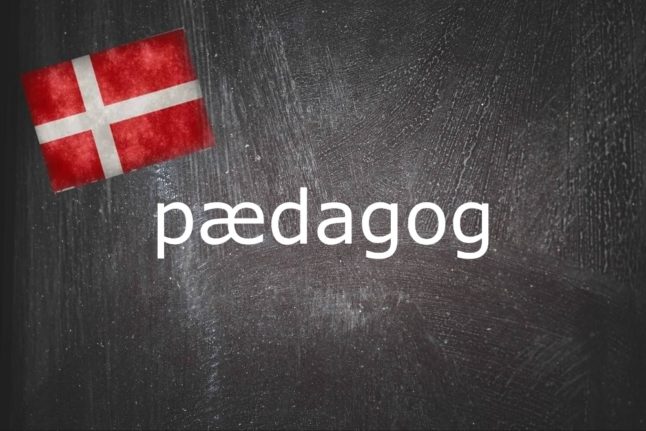What is large?
It’s not the Danish word for “big”, but can mean a number of other related adjectives: generous, laid-back, unperturbed, tolerant, not parsimonious, or happy to compromise.
While it’s accurate to say that large doesn’t mean “big”, it’s not completely accurate to say that it doesn’t mean “large”.
That’s because clothes sizing uses the same scale as in Anglophone countries, so a “small” is a small, a “medium” a medium, and a “large” is a large, even though these words are not used to describe sizes in any other contexts (apart from some cafes and fast food restaurants).
Why do I need to know large?
It sounds like a loan word from English whose meaning has become slightly distorted on the journey between languages (see the expression fit for fight for a good example of this).
This is not quite the case, though. The Danish large is borrowed from the French large, which comes from the Latin largus: “plenty, surplus, generous”.
So technically it’s the English word that has warped the meaning of the older Latin one, while the version in Danish seems a bit more faithful to the Latin.
Examples
Han ville slet ikke have noget for benzinen, selvom det var en lang tur. Han var ret large.
He didn’t want anything for the petrol, even though it was a long journey. He was pretty generous.
Hun tabte sin telefon og den gik i stykker, men hun virkede ret large.
She dropped her phone and it broke, but she didn’t seem bothered.
Du bestemmer om vi skal spise fisk eller kylling i aften. Jeg er large.
You can decide whether we have fish or chicken this evening. I’m happy either way.



 Please whitelist us to continue reading.
Please whitelist us to continue reading.
Member comments